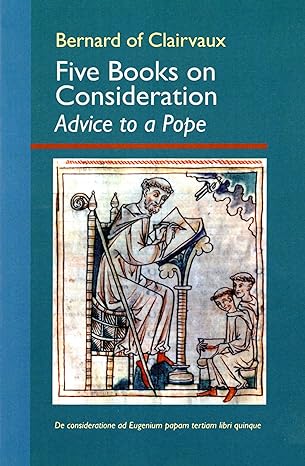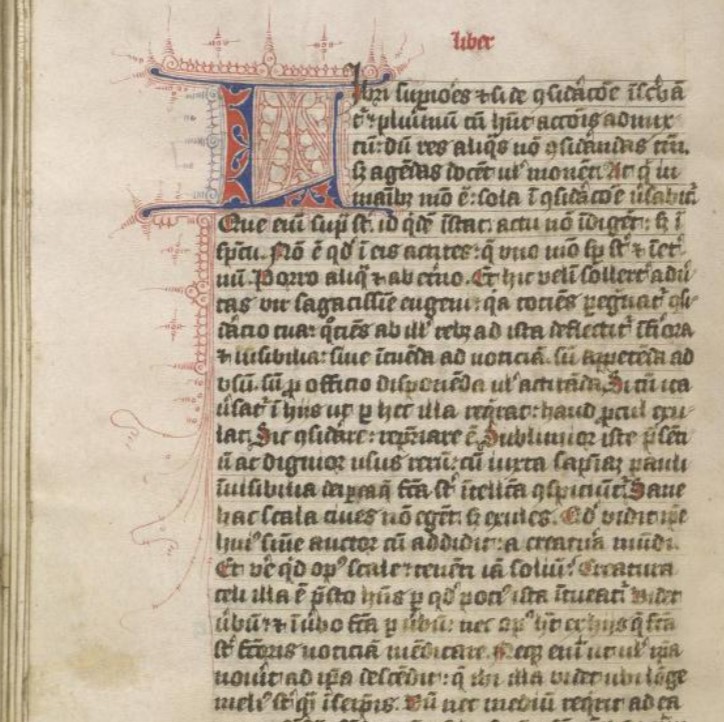A scene from The Canterbury Psalter (12th century)
Blog
On Consideration, Book V (Bernard of Clairvaux)
One of the last writings Bernard of Clairvaux (1090-1153) completed was his Five Books on Consideration. The whole work is fascinating and worth reading: it’s essentially advice to one of his former students who had become bishop of Rome (Pope Eugene III), explaining how to manage such great obligations without losing his soul. The early books feature meditations on virtue, practical advice on schedule management and delegation, an apology for the results of the second crusade, and plenty of pointed directions for how to reform the church’s own government –these catalogs of abuses and corruptions help explain why On Consideration became a favorite text among reformers like Wyclif and Erasmus, and especially among capital-R Reformers like Calvin.
But the real treasure is Book V, chapters 6-14. Here in the final 25 pages or so, Bernard turns the reader’s attention to the things above, and especially to the triune God. It’s a deeply intelligent and beautifully written section. Bernard has been called “the last of the fathers,” and while that’s a dubious enough title for a twelfth-century theologian, this section does serve as something of a capstone for the early church’s doctrine of the Trinity. Phrases from it get picked up and cited by numerous later theologians, not so much because of Bernard’s authority and reputation, but because they express the truth so well (Doctor Mellifluus is another traditional title for Bernard, because his teaching was like flowing honey).
I’ll revisit this blog post later to enrich it with some juicy samples of excellent trinitarianism. But for now I just wanted to make it easy for inquiring minds to get hold of this important text.

The in-print paperback you want for coursework is Five Books on Consideration: Advice to a Pope (Athens, Ohio: Cistercian Publications by the Liturgical Press, 1976). Here it is at the publisher; here it is at Amazon. This is volume 13 in the Works of Bernard of Clairvaux series, and the translators are John D. Anderson and Elizabeth T. Kennan. At 222 pages and featuring a good intro, marginal references and nice endnotes, this is the best version to assign. This is also the best edition to footnote in publications, unless you’re working at such a high level that you need to quote directly from the critical Latin edition by Jean Leclercq and Henri Rochais (Rome: Editiones Cistercienses, 1963) in volume 3 of Sancti Bernardi Opera (393-493). But if that’s you, you’re not reading this blog post or getting advice from one such as me. This Advice to a Pope edition can also be read online via 1-hour checkouts from the digital library at Internet Archive.
Want an older translation? I don’t advise it, but do what you gotta do: 1908 by George Lewis, 1921 by A Priest of Mount Melleray. These are free pdfs and seem like pretty good translations to me, but I bet you’ll end up wishing you’d gone with the Liturgical Press option.
Want the Latin? The non-critical but widely available text is in volume 182 of Migne’s Patrologia Latinae. (PDF from Documenta Catholica Omnia; searchable text from Zurich’s Corpus Corporum.)
About This Blog

Fred Sanders is a theologian who tried to specialize in the doctrine of the Trinity, but found that everything in Christian life and thought is connected to the triune God.



